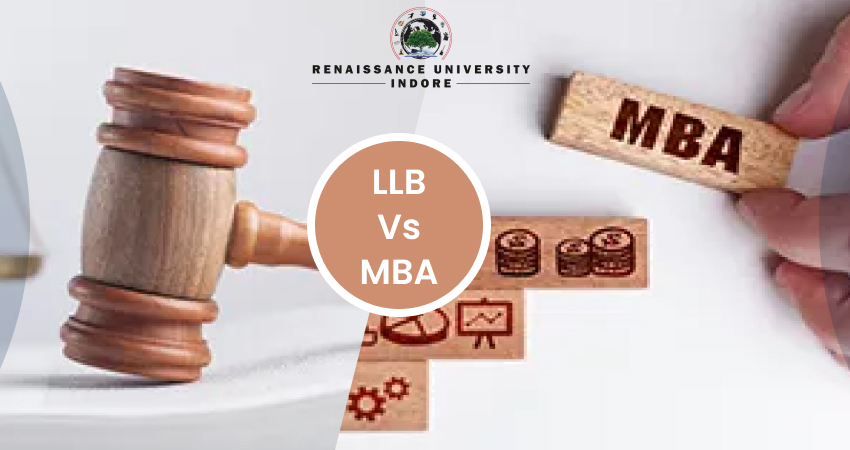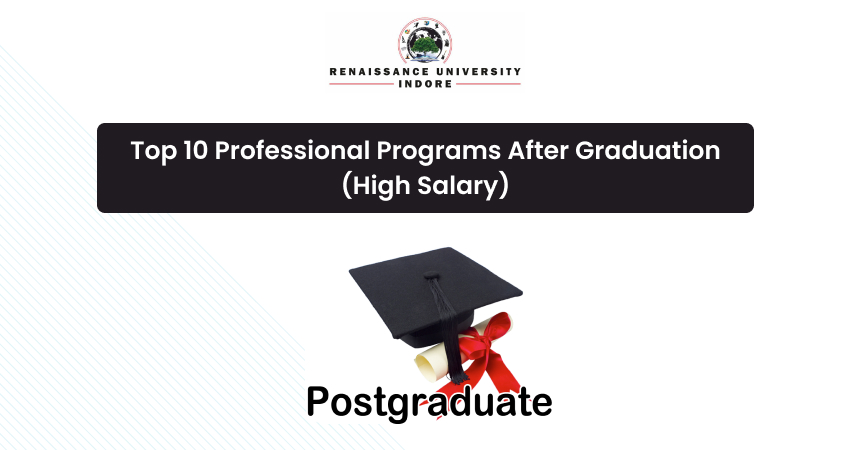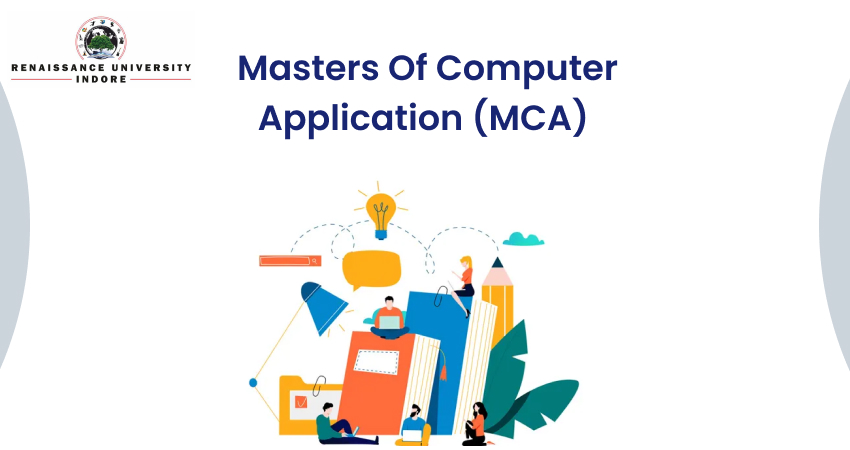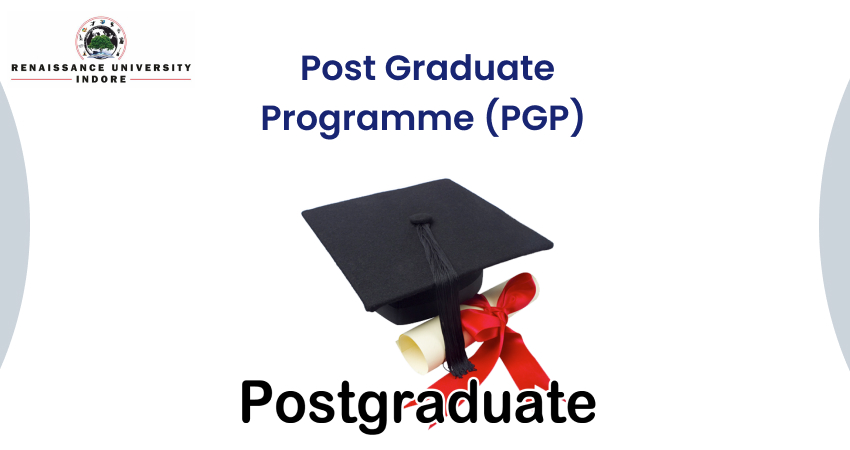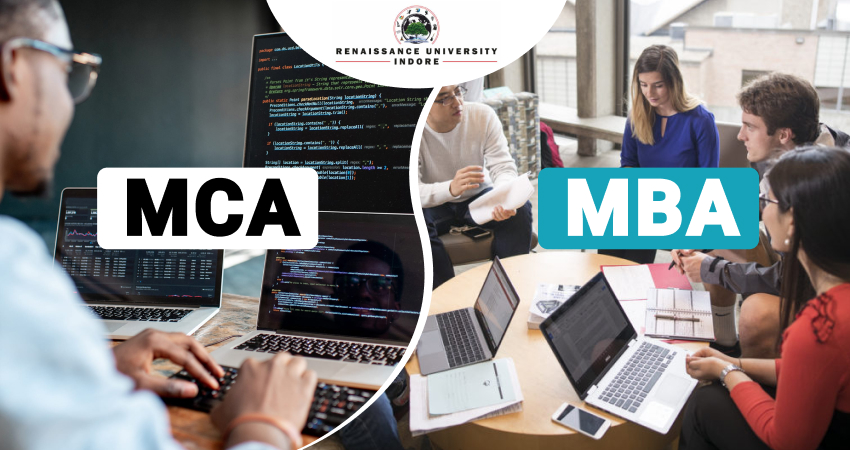MBA in Finance: Introduction
Finance is the lifeblood of modern business and the key to economic success. In an ever-evolving global economy, the demand for finance professionals with a deep understanding of financial principles and strategic acumen continues to rise. This is where the pursuit of a Master of Business Administration (MBA) with a specialization in Finance becomes not just an option but a vital career move.
In this comprehensive guide, we delve into the world of finance-focused MBA programs, providing invaluable insights into the 2024 admissions landscape, the financial commitments required, the syllabus and coursework that will sharpen your financial acumen, the promising job prospects that await graduates, and a curated list of top colleges to consider for your finance MBA journey.
Whether you’re a recent graduate looking to further your education or a mid-career professional seeking a competitive edge, this guide will serve as your compass on the path to mastering finance through MBA programs. Let’s embark on this journey to uncover the career opportunities and knowledge that can shape your financial career in 2024 and beyond.
MBA in Finance: An Overview
The pursuit of a Master of Business Administration (MBA) in Finance is a strategic choice that can propel your career to new heights. In this section, we will explore the essential elements of an MBA in Finance, understanding why it’s a highly sought-after qualification, the advantages it offers, and the opportunities it unlocks.
What is an MBA in Finance?
- An MBA in Finance is a specialized graduate degree program that focuses on equipping students with advanced financial knowledge, analytical skills, and a deep understanding of the intricacies of financial management.
- It is designed to provide a comprehensive education in finance, covering topics such as corporate finance, investments, financial markets, risk management, and more.
- This program goes beyond theory; it emphasizes practical applications and real-world problem-solving to prepare students for the complexities of financial decision-making in the business world.
Why pursue an MBA in Finance?
- Enhanced Career Opportunities: An MBA in Finance opens doors to a wide range of career opportunities, including roles in corporate finance, investment banking, asset management, and financial consulting.
- Skill Enhancement: The program hones your financial analysis and strategic decision-making skills, making you an asset in any finance-related role.
- Networking: MBA programs offer a valuable opportunity to build a professional network that can prove instrumental in your future career.
- Leadership Development: Many MBA programs also emphasize leadership development, ensuring that graduates are not just financially savvy but also effective leaders in their organizations.
Career opportunities and advantages
- Versatility: Graduates of finance MBA programs can pursue careers in various sectors, from the corporate world to nonprofit organizations and government agencies.
- Competitive Edge: An MBA in Finance gives you a competitive edge in the job market, allowing you to stand out from other candidates.
- Financial Rewards: Finance professionals often command higher salaries and enjoy excellent compensation packages.
- Job Security: The need for financial experts remains strong, ensuring job security and stability in this field.
In the next sections, we will delve deeper into the specifics of MBA programs in finance, including the admissions process, program costs, syllabus, job prospects, and top colleges to consider for your finance MBA journey.
Admissions
Embarking on your journey to earn an MBA in Finance in 2024 begins with understanding the admissions process. This section is dedicated to providing you with the insights and guidance needed to navigate the application process successfully.
Application Deadlines and Requirements
- Each MBA program has its unique admission deadlines. It’s crucial to research and note these deadlines, ensuring you have ample time to prepare your application.
- Application requirements typically include:
- Completed application form: Submit all required forms and documents within the specified timeframe.
- Academic transcripts: Provide your undergraduate and any postgraduate transcripts.
- Standardized test scores: Many MBA programs require GRE or GMAT scores, so be prepared to take these exams.
- Letters of recommendation: Secure strong letters of recommendation from individuals who can speak to your qualifications and potential.
- Statement of purpose: Craft a compelling statement that explains your motivation for pursuing an MBA in Finance and your career goals.
- Resume: Detail your academic and professional experiences.
- Interviews: Some programs may require interviews as part of the selection process.
Tips for a Successful Application
- Start Early: Begin your application process well in advance to ensure you meet all deadlines and have ample time for revisions.
- Tailor Your Application: Customize your application for each program, highlighting relevant experiences and skills.
- Seek Strong Recommendations: Choose recommenders who know you well and can provide meaningful insights into your qualifications.
- Write a Stellar Statement of Purpose: Your statement should convey your goals, aspirations, and what you can bring to the program.
- Prepare for Interviews: If interviews are part of the admissions process, practice and prepare thoroughly.
- Proofread and Edit: Carefully review your application for any errors, and consider seeking feedback from others.
Scholarships and Financial Aid Options
- Many MBA programs offer scholarships and financial aid opportunities to help ease the financial burden of your education.
- Research the scholarships and financial aid options available for finance MBA programs, and be sure to submit any required applications or documents promptly.
- Additionally, explore external scholarship opportunities and government grants that may be available to finance students.
Successful admission to an MBA program in finance sets the stage for your journey toward mastering finance. In the following sections, we will delve into the financial aspects of your education, the syllabus, job prospects, and top colleges to consider.
MBA Entrance Exams 2023
Certainly, here’s a table listing some of the common entrance exams for MBA in Finance programs in 2023:
| Exam Name | Exam Conducting Body | Application Deadline | Exam Date | Exam Mode |
|---|---|---|---|---|
| GMAT | GMAC | Rolling admissions | Throughout the year | Computer-based |
| GRE | ETS | Varies by country | Throughout the year | Computer-based |
| CAT (Common Admission Test) | IIMs (Indian Institutes of Management) | TBA (usually August) | November | Computer-based |
| XAT (Xavier Aptitude Test) | XLRI Jamshedpur | TBA (usually November) | January | Computer-based |
| MAT (Management Aptitude Test) | AIMA (All India Management Association) | TBA (usually in four cycles) | Throughout the year | Paper-based and Computer-based |
| CMAT (Common Management Admission Test) | NTA (National Testing Agency) | TBA (usually November) | January | Computer-based |
| SNAP (Symbiosis National Aptitude Test) | Symbiosis International University | TBA (usually November) | December | Computer-based |
| IIFT MBA (International Business) | NTA (National Testing Agency) | TBA (usually August) | December | Computer-based |
| NMAT by GMAC | GMAC | TBA (usually November) | Throughout the year | Computer-based |
| IBSAT (ICFAI Business School Aptitude Test) | ICFAI Foundation | TBA (usually December) | December | Computer-based |
Please note that the application deadlines and exam dates may vary from year to year, so it’s essential to check the official websites of the respective exams for the most up-to-date information and specific details for the 2023 admissions.
MBA Program Costs
Understanding the financial commitment required for pursuing an MBA in Finance is a crucial aspect of your journey. In this section, we will delve into the various costs associated with these programs and explore strategies to manage your finances effectively.
A. Tuition Fees for Top Finance MBA Programs
- Tuition fees for MBA programs in Finance can vary widely depending on the school, its reputation, and the program’s duration. The fees can range from moderate to substantial.
- Top-tier business schools often have higher tuition costs, but they also tend to provide a strong return on investment due to the enhanced career opportunities they offer.
B. Additional Expenses
- Beyond tuition, there are additional costs to consider, including:
- Books and Course Materials: Budget for textbooks, reference materials, and software required for your courses.
- Living Costs: Factor in housing, food, transportation, and other living expenses, especially if you’ll be relocating for your MBA.
- Health Insurance: Many schools require students to have health insurance, which may be an additional cost if you’re not already covered.
- Networking and Professional Development: Expenses related to attending conferences, seminars, and networking events to enhance your career prospects.
C. Ways to Finance Your MBA Education
- Scholarships: Explore scholarships offered by your chosen business school, external organizations, and government programs. These can significantly reduce your financial burden.
- Financial Aid: Some schools provide need-based financial aid packages. Complete the Free Application for Federal Student Aid (FAFSA) to determine your eligibility for federal aid.
- Assistantships: Teaching or research assistantships may be available to help cover tuition and provide a stipend.
- Loans: Federal and private student loans can provide financial support, but be mindful of the interest rates and repayment terms.
- Employer Sponsorship: Some companies offer financial assistance or sponsorship to employees pursuing an MBA to enhance their skills.
- Personal Savings: Using your savings to cover some expenses can be an option, but it’s essential to have a financial plan in place.
Average Fees of MBA Program
It’s crucial to plan your finances meticulously, including budgeting and exploring funding options, to make your MBA in Finance a reality without undue financial strain. In the upcoming sections, we’ll delve into the syllabus, job prospects, and top colleges for your MBA journey.
The average fee for an MBA program in Finance can vary significantly depending on the country, the reputation of the business school, and the specific program’s duration and features. On average, you can expect to pay anywhere from $30,000 to $60,000 or more for tuition fees alone for a one to two-year MBA program. Keep in mind that this figure is a rough estimate, and the actual cost can be lower or higher, depending on the factors mentioned above.
In addition to tuition fees, you should budget for additional expenses, such as textbooks, living costs, health insurance, and other miscellaneous costs. These additional expenses can add several thousand dollars to the total cost of your MBA.
It’s essential to research specific programs and schools you’re interested in to get accurate and up-to-date information on the cost of their MBA in Finance programs, as tuition fees can change from year to year. Additionally, explore financial aid, scholarships, and other funding options to help offset the costs of your education.
Syllabus and Coursework
The heart of any MBA program lies in its curriculum. An MBA in Finance is no exception, offering a diverse array of courses and experiences to equip you with the knowledge and skills necessary to thrive in the financial world. In this section, we’ll provide an overview of the typical syllabus and coursework you can expect in a finance-focused MBA program.
A. Core Courses in Finance MBA Programs
- Financial Accounting: A foundational course that covers principles of accounting and financial statement analysis.
- Corporate Finance: Focuses on financial decision-making within corporations, including capital budgeting, risk management, and financial strategies.
- Investments and Portfolio Management: Explores the principles of investing, asset valuation, and portfolio optimization.
- Financial Markets and Institutions: Examines the structure and operations of financial markets, including stock exchanges, banks, and regulatory bodies.
- Risk Management: Addresses risk assessment, mitigation, and the use of financial derivatives for risk management.
- Financial Modeling: Teaches quantitative techniques and modeling for financial analysis and decision-making.
B. Specializations and Electives
- MBA programs often allow you to tailor your education by choosing specializations or electives in areas of finance that interest you the most. Some common specializations include:
- Investment Banking
- Asset Management
- Real Estate Finance
- Corporate Treasury
- Financial Analysis
- Electives provide opportunities to explore related fields like entrepreneurship, international finance, or sustainable finance, allowing you to diversify your knowledge and skills.
C. Case Studies and Practical Learning
- Many finance MBA programs emphasize real-world application through case studies and practical projects.
- Case studies enable you to analyze and solve complex financial problems based on real business scenarios.
- Group projects, internships, and capstone projects offer hands-on experience and opportunities to apply your knowledge in real business settings.
The curriculum of an MBA in Finance is designed to prepare you for the challenges and opportunities in the financial sector. It combines theoretical knowledge with practical skills, making you well-equipped for a wide range of finance-related careers. In the following sections, we’ll explore the job prospects in the finance field, and top colleges to consider, and provide insights into alumni success stories.
Job Prospects and Salary Expectations
Pursuing an MBA in Finance opens the door to a wide array of lucrative career opportunities in the financial sector. Here, we will explore some of the job prospects available to finance MBA graduates in India and provide salary expectations in Indian Rupees.
A. Career Opportunities for Finance MBA Graduates
- Investment Banking: Finance professionals in investment banking are responsible for managing mergers and acquisitions, raising capital, and advising clients on financial strategies. They often work for investment banks and financial advisory firms.
- Corporate Finance: This role involves managing a company’s finances, making strategic financial decisions, and ensuring the organization’s financial health. Finance managers, treasurers, and financial analysts often work in this capacity.
- Asset Management: Professionals in asset management oversee investment portfolios, ensuring they grow and generate returns for clients. This field includes roles like portfolio manager and investment analyst.
- Risk Management: Risk managers assess and mitigate financial risks within an organization, which is especially crucial for financial institutions. Risk analysts and compliance officers fall into this category.
- Financial Analysis: Financial analysts assess financial data and trends to provide insights for investment decisions. They work in various industries, such as banking, corporate finance, or consulting.
- Consulting: Finance consultants work with businesses to improve their financial strategies and decision-making processes. They offer valuable insights and recommendations to clients.
B. Salary Expectations
- Salary expectations for finance MBA graduates can vary based on factors such as the level of experience, the specific job role, the location of employment, and the reputation of the employer. Here are some general salary ranges for finance professionals in India:
- Entry-Level Positions: For entry-level positions in finance, such as financial analysts or junior financial consultants, salaries can range from INR 6 lakhs to INR 12 lakhs per year.
- Mid-Level Positions: With a few years of experience, you can expect to earn between INR 10 lakhs to INR 20 lakhs annually, depending on your role and the company.
- Senior Positions: Senior finance professionals, such as finance managers, investment bankers, or senior consultants, can command salaries ranging from INR 20 lakhs to INR 50 lakhs or more, depending on their experience and expertise.
- Top Executives: Those who reach top executive positions like Chief Financial Officers (CFOs) can earn salaries exceeding INR 50 lakhs, and in some cases, even exceeding INR 1 crore or more per year.
It’s important to note that these figures are approximate and can vary significantly based on the specific circumstances and the ever-changing job market. Finance MBA graduates are well-positioned to achieve rewarding careers in India’s financial sector, with ample opportunities for growth and advancement.
Top Colleges for Finance MBA
Selecting the right business school for your MBA in Finance is a critical decision that can shape your academic experience and future career. Here, we’ve compiled a list of some of the top colleges and universities in India and around the world known for their exceptional finance MBA programs:
1. Indian Institutes of Management (IIMs)
- The IIMs are renowned for their management programs. IIMs such as IIM Ahmedabad, IIM Bangalore, and IIM Calcutta offer MBA programs with a finance specialization.
2. Renaissance University (RU)
- Renaissance University is a top-ranked business school in Indore (MP) and offers a Post Graduate Program in Management (PGP) with a finance focus.
3. XLRI Xavier School of Management, Jamshedpur
- XLRI is known for its rigorous and highly-regarded finance program, which is part of its Post Graduate Diploma in Management (PGDM).
4. Faculty of Management Studies (FMS), Delhi University
- FMS Delhi offers a Master of Business Administration program with a finance specialization, attracting top recruiters.
5. S.P. Jain Institute of Management and Research (SPJIMR), Mumbai
- SPJIMR’s PGDM program offers a Finance specialization and is known for its focus on experiential learning.
6. National University of Singapore Business School
- This renowned international institution offers a strong MBA program with finance specializations, attracting students from across the globe.
7. London Business School, UK
- LBS is consistently ranked among the top business schools globally and offers a comprehensive MBA program with a finance concentration.
8. Wharton School, University of Pennsylvania, USA
- Known for its finance program, Wharton offers a highly regarded MBA with a finance focus.
9. Harvard Business School, USA
- Harvard Business School is renowned for its MBA program, with numerous finance-related courses and opportunities for students.
10. INSEAD, France
- INSEAD’s MBA program is known for its global perspective on finance and offers a finance specialization.
These institutions are known for their rigorous academic programs, expert faculty, robust alumni networks, and strong ties to the finance industry. When considering where to pursue your finance MBA, research these colleges in detail to find the one that aligns with your career goals and aspirations.
Remember that while attending a top-ranked institution can open doors, your success in the finance world will also depend on your dedication, networking, and how you apply what you learn during your MBA program.
Application Process and Tips
The application process for an MBA in Finance can be competitive and demanding. It’s essential to navigate it strategically to enhance your chances of securing admission to your preferred program. In this section, we’ll provide a step-by-step guide to the application process and share valuable tips to help you make a strong impression on admissions committees.
A. Step-by-Step Guide for Applying to Finance MBA Programs
- Research and Shortlist Programs: Begin by researching MBA programs with a finance specialization. Create a shortlist of schools that align with your career goals and preferences.
- Check Admission Requirements: Review the admission requirements for each program. This typically includes academic transcripts, standardized test scores (GMAT/GRE), letters of recommendation, a statement of purpose, and sometimes an interview.
- Prepare Required Documents: Collect all necessary documents, such as transcripts, test scores, and letters of recommendation. Make sure your resume and statement of purpose are well-crafted.
- Take Standardized Tests: If required, prepare for and take the GMAT or GRE. Aim for a competitive score that aligns with the program’s expectations.
- Request Letters of Recommendation: Approach individuals who can provide strong recommendations, such as professors, employers, or supervisors. Ensure they have ample time to write quality recommendations.
- Write Your Statement of Purpose: Craft a compelling statement that highlights your motivations, career goals, and why you’re a good fit for the program. Tailor it to each school.
- Complete the Application Form: Fill out the online application form for each program. Pay close attention to detail, and double-check for accuracy.
- Prepare for Interviews: If interviews are part of the admissions process, practice and prepare by researching commonly asked questions and formulating your responses.
- Submit Applications on Time: Submit your applications well before the deadlines. Late submissions may not receive full consideration.
B. Key Considerations When Selecting Schools
- Fit: Choose programs that align with your career goals, interests, and values. Consider factors like location, culture, and teaching style.
- Reputation: Research the reputation and rankings of the MBA programs you’re considering. Prestigious programs often have strong networks and resources.
- Financial Aid: Investigate scholarship and financial aid opportunities at each school. Some programs offer scholarships based on merit or need.
- Career Services: Look into the career services and placement records of each program. A strong career center can be instrumental in securing internships and job opportunities.
- Alumni Network: Consider the strength and size of the school’s alumni network. A robust network can provide valuable connections in your field.
- Visits and Information Sessions: If possible, attend information sessions or visit the campuses of your top choices to get a feel for the environment and program offerings.
C. Interview Tips and Tricks
- Be prepared to discuss your academic and professional experiences.
- Articulate how the program aligns with your career aspirations.
- Showcase your enthusiasm and passion for finance and your chosen program.
- Demonstrate your understanding of the program’s unique offerings.
By following this step-by-step guide and considering these key factors, you can navigate the application process successfully and increase your chances of gaining admission to the MBA in Finance program of your choice.
Conclusion
In the dynamic and ever-evolving world of finance, equipping yourself with the right knowledge and skills is not just a choice but a necessity. Pursuing an MBA in Finance opens doors to a world of possibilities, enabling you to master the intricacies of finance and carve out a successful career in this competitive field.
As we conclude our comprehensive guide to MBA programs in finance, we’ve explored the 2024 admissions landscape, dissected the financial commitments, delved into the syllabus and coursework, and shed light on the promising job prospects that await finance MBA graduates. We’ve also highlighted some of the top colleges and shared inspiring alumni success stories that exemplify the transformative power of this education.
Whether you’re a recent graduate with your sights set on a finance career or a mid-career professional seeking to enhance your financial acumen, embarking on an MBA in Finance journey in 2024 can be your catalyst to success. The road ahead may be challenging, but it’s a journey that offers unmatched opportunities for growth, learning, and impact.
In the realm of finance, knowledge truly is power, and a finance MBA program is your key to mastering it. As you take the next steps in your educational journey, remember that dedication, perseverance, and a passion for finance will be your strongest allies. We wish you the very best as you pursue your dreams and strive to become a master of finance. Your future in the financial world is full of promise and potential, and we can’t wait to see the heights you’ll reach.
FAQs related to MBA programs in Finance
Q1: What is an MBA in Finance?
A1: An MBA in Finance is a specialized graduate degree program that focuses on equipping students with advanced financial knowledge, analytical skills, and a deep understanding of financial management. It prepares graduates for careers in areas like investment banking, corporate finance, asset management, and risk management.
Q2: What are the typical admissions requirements for MBA programs in Finance?
A2: Admissions requirements typically include academic transcripts, standardized test scores (GMAT/GRE), letters of recommendation, a statement of purpose, and sometimes an interview. Specific requirements may vary by school.
Q3: How much does an MBA in Finance cost on average?
A3: The average cost of an MBA in Finance varies widely depending on the school, location, and program duration. Tuition fees alone can range from $30,000 to $60,000 or more, with additional expenses like living costs and textbooks.
Q4: What career opportunities are available for finance MBA graduates?
A4: Finance MBA graduates can pursue careers in areas like investment banking, corporate finance, asset management, risk management, and financial analysis. The program equips them with skills and knowledge for leadership roles in finance.
Q5: What is the average salary expectation for finance professionals in India after earning an MBA in Finance?
A5: Salary expectations vary based on factors like experience, job role, and location. On average, entry-level professionals can earn between INR 6 lakhs to INR 12 lakhs annually, while senior executives can command salaries exceeding INR 50 lakhs or more.
Q6: What are some top colleges for MBA programs in Finance?
A6: Top colleges for MBA in Finance include the Indian Institutes of Management (IIMs) in India, Indian School of Business (ISB), XLRI Xavier School of Management, and renowned international schools like London Business School, Wharton, Harvard Business School, and INSEAD.
Q7: How can I secure financial aid or scholarships for my finance MBA program?
A7: Many schools offer scholarships and financial aid based on merit or need. It’s essential to research the specific scholarships offered by your chosen school and explore external funding sources.
Q8: Is work experience required for admission to MBA in Finance programs?
A8: Many MBA programs prefer applicants with some work experience, typically ranging from 2 to 5 years. However, some programs may admit exceptional candidates directly from undergraduate studies.
Q9: How long does it typically take to complete an MBA in Finance program?
A9: The duration of MBA in Finance programs varies, but most are completed in one to two years. Part-time or online programs may offer more flexible timelines.
Q10: Can I switch to a career in finance with an MBA if my undergraduate degree is in a different field?
A10: Yes, an MBA in Finance is an excellent choice for career changers. Many MBA programs accept students from diverse academic backgrounds, and the curriculum is designed to provide a strong foundation in finance concepts.
These FAQs should provide you with valuable information about pursuing an MBA in Finance and help you make informed decisions about your education and career path.




